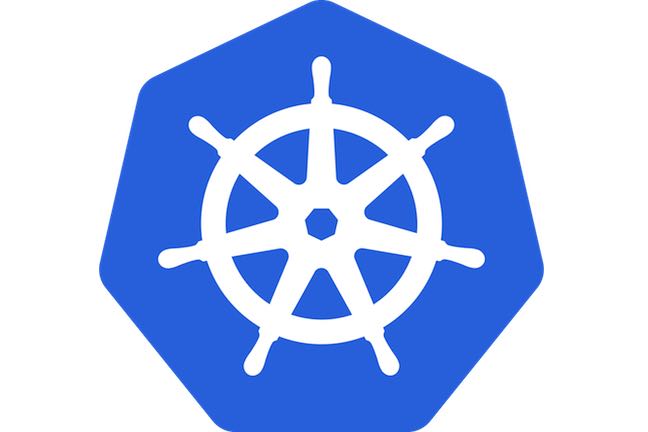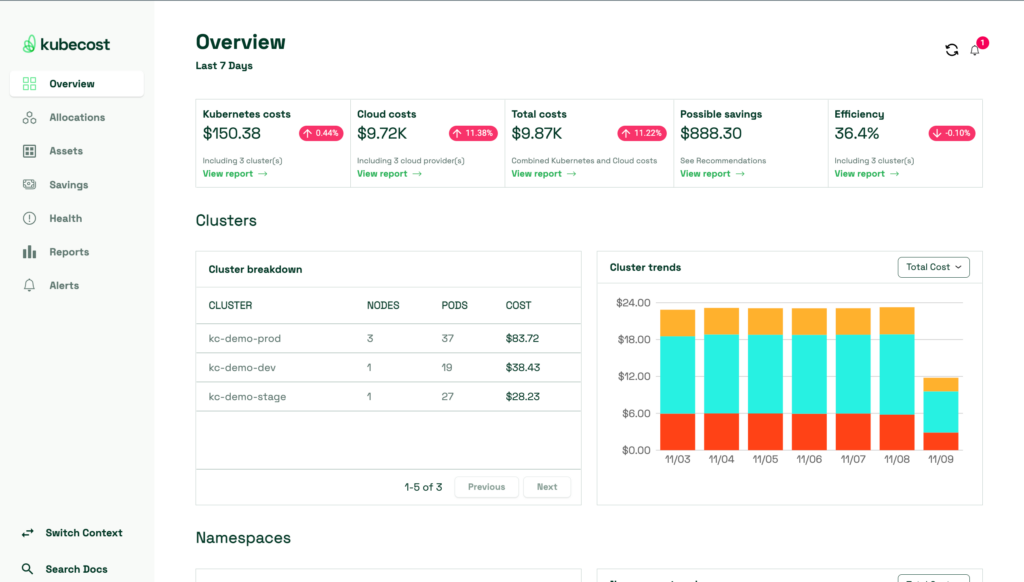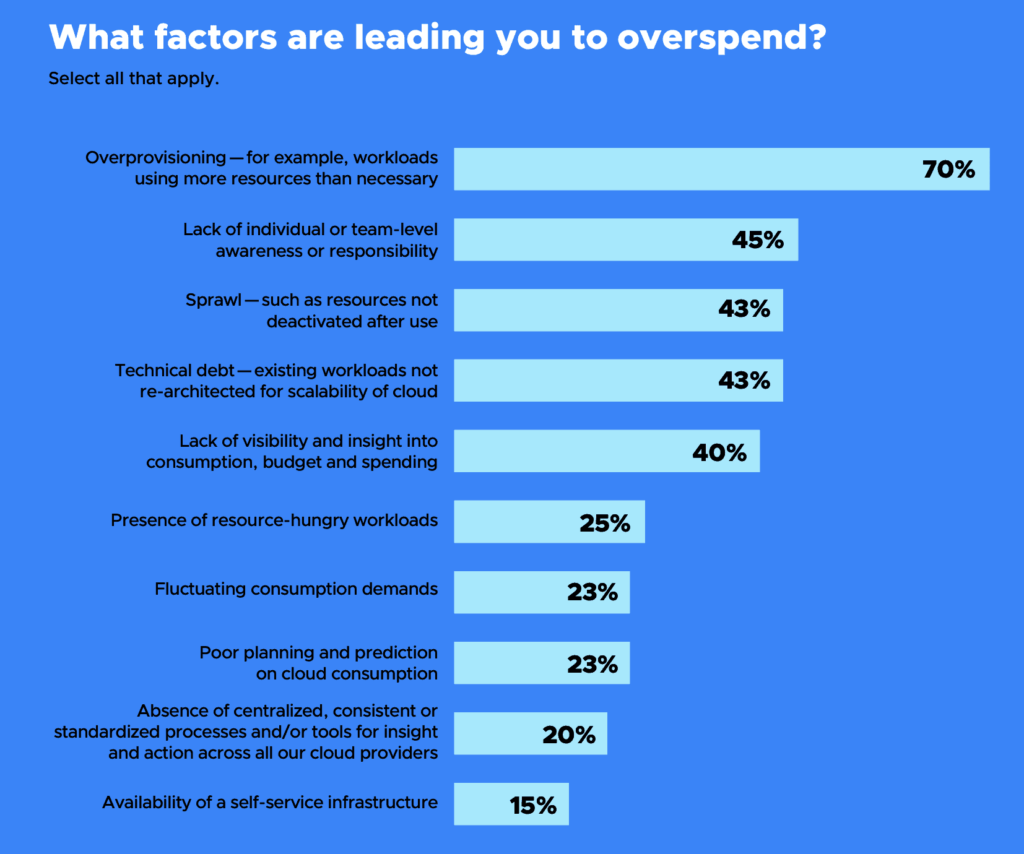
Kubecost 2.0 has landed to help organizations analyze and control Kubernetes costs, a month month after a CNCF survey found that overprovisioning is a persistent issue and Kubernetes adoption tends to increase IT spend.
Based on an open source project called OpenCost, Kubecost includes tools for monitoring and optimizing Kubernetes expenses.
Kubecost Version 2.0 includes new network monitoring that the company claims can achieve cost reductions of 30-50 percent, thanks to fact that network costs are a frequent source of unexpected spend with cloud providers. Another new feature is Kubecost Actions, for managing automation workflows. This is capable of dynamic scaling of resources. There is also improved cost forecasting, said to be powered by machine learning, injecting AI into cost projections and potential optimizations. Anomaly detection is another feature, aiming to prevent bill shock, or at least mitigate it, by detecting spending deviations and triggering alerts.
The company also claims that a new API backend delivers “100x performance at scale,” ideal for larger Kubernetes environments – including the ability to query over 3 years of historical data.

The full release notes are here.
Kubecost exists in both free and enterprise versions. This table, not yet updated for version 2.0, shows the additional tools in the enterprise version. Kubecost is deployed using the Helm deployment tool and includes Prometheus and Grafana dependencies, whereas with OpenCost these are managed separately.
A CNCF report last month showed that organizations do struggle to contain Kubernetes costs. Nearly 50 percent reported that adoption had increased costs, while only 24 percent believed they had reduced. The biggest factor by some distance is overprovisioning, cited by 70 percent of respondents. Other factors include failing to deactivate resources no longer in use (43 percent), lack of awareness in the team (45 percent), and lack of visibility into consumption and spending (40 percent). Some 38 percent reported that they have no Kubernetes cost monitoring in place, while most others use the tools built into cloud platforms, such as AWS Cost Explorer, GCP Cost Tools and Azure Cost Management. Kubecost is used by 23 percent, and OpenCost by 11 percent.

A new Kubernetes Configuration Benchmark report conducted by Fairwinds, based on analysis of around 330,000 workloads, reported that in 37 percent of organizations, more than 50 percent of containers need investigation for right-sizing.
